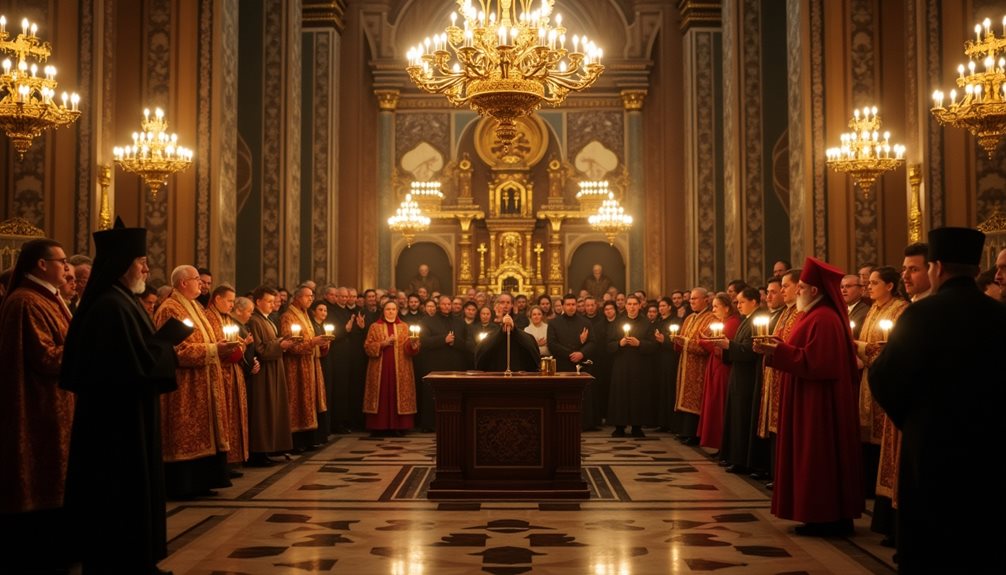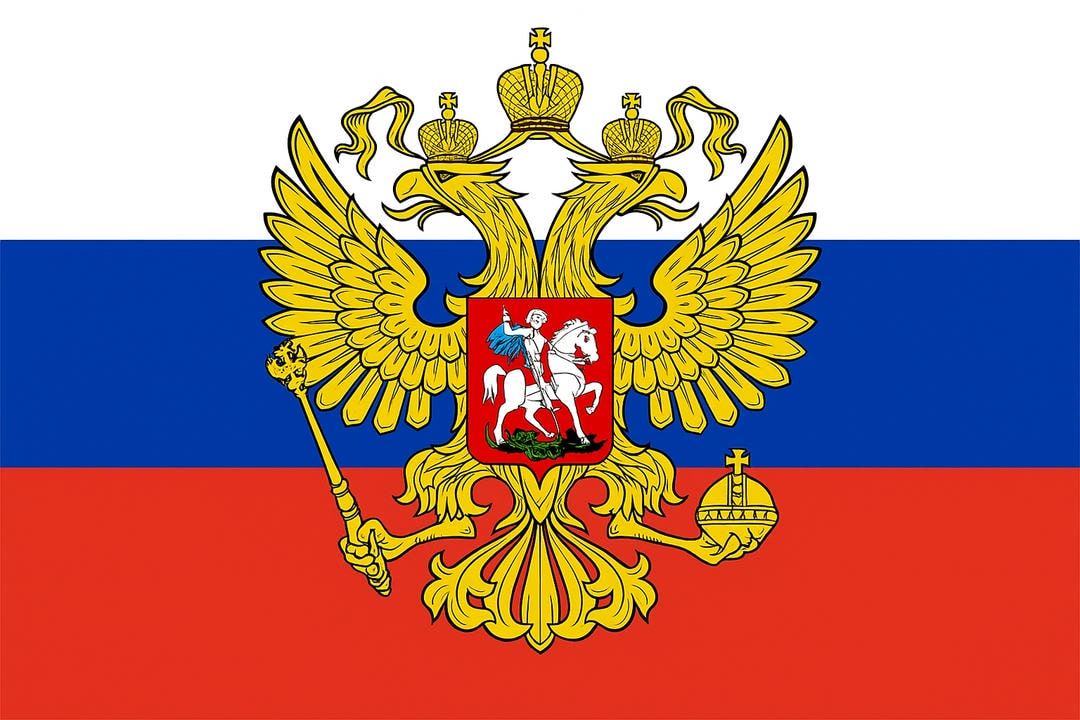Mastering the Days of the Week in Russian
Understanding the days of the week in Russian is a crucial step in enhancing your language skills. While the Cyrillic alphabet and pronunciation may initially seem challenging, mastering these basics will significantly ease your everyday conversations.
A solid grasp of the days of the week is essential when diving into the Russian language. These terms are fundamental to daily interactions, scheduling, and planning. Whether you’re arranging meetings, organizing travel plans, or simply chatting with friends about your week, knowing the days in Russian will make your conversations smoother and more meaningful.
Learning these terms early on can boost your confidence. This manageable set of vocabulary provides a sense of accomplishment as you master each word, laying a strong foundation for further learning. Since days of the week often appear alongside numbers and months, you’ll begin to notice patterns that make the language more intuitive.
As you embark on learning the days of the week in Russian, you’ll encounter some unique challenges. One of the first hurdles is adapting to the Cyrillic alphabet, which differs from the Latin alphabet you’re familiar with. Familiarizing yourself with these new characters is essential for reading and writing effectively in Russian.
Pronunciation presents another significant challenge. Russian phonetics differ greatly from English, featuring sounds that may be unfamiliar. For instance, the Russian “ы” has no direct equivalent in English, making it tricky to pronounce. Additionally, stress patterns in Russian words can be unpredictable; misplacing stress can alter a word’s meaning entirely. Therefore, paying close attention to pronunciation is crucial.
You’ll also find that many Russian words for days are longer and more complex than their English counterparts. Terms like “понедельник” (Ponedel’nik) for Monday or “четверг” (Chetverg) for Thursday can seem daunting at first. Breaking down each word into syllables and repeating them can help you become more comfortable.
Understanding the Structure of the Week
In Russia, the week begins on Monday and ends on Sunday, contrasting with some Western calendars that start on Sunday. This structure aligns with the typical work or school week, making Monday the first day.
Monday: Понедельник (Ponedel’nik) – meaning “after Sunday.”
Tuesday: Вторник (Vtornik) – derived from “second.”
Wednesday: Среда (Sreda) – translating to “middle.”
Thursday: Четверг (Chetverg) – meaning “fourth.”
Friday: Пятница (Pyatnitsa) – meaning “fifth.”
Saturday: Суббота (Subbota) – reflecting the Hebrew Sabbath.
Sunday: Воскресенье (Voskresen’ye) – meaning “resurrection,” referencing the Christian belief in Jesus’s resurrection.
Cultural Insights
The naming conventions for days in Russian and English highlight fascinating cultural differences. In English, many days are named after pagan gods and celestial bodies—Monday honors the Moon (Moon’s day), while Thursday pays tribute to Thor, the Norse god of thunder. This reflects ancient mythology’s influence on the English language.
In contrast, Russian names follow a straightforward numbering system that emphasizes order and structure. This difference not only aids language learners but also provides insights into cultural values regarding organization and clarity.
By embracing these linguistic nuances and practicing regularly, you’ll find yourself navigating through the days of the week in Russian with increasing confidence and ease.
Russian days: pronunciation and grammatical gender explained
Understanding the days of the week in Russian is fundamental for anyone hoping to master the language. Each day has its unique pronunciation and grammatical gender, which can affect how sentences are constructed.
Grammatical gender in Russian affects adjectives and verbs, so knowing if a day is masculine, feminine, or neuter is vital. Practice these words aloud, focusing on both pronunciation and the gender of each.
Understanding these basics will pave the way for more complex sentence structures and a deeper understanding of Russian.
Monday – понедельник (ponedel’nik) – masculine
Let’s kick things off with Monday, or “понедельник” (ponedel’nik) in Russian. This day is often seen as the start of the workweek, just like in many other cultures. In Russian, “понедельник” is masculine, so you’ll use masculine adjectives and agreements when describing your Mondays.
The word “понедельник” comes from “после недели” (posle nedeli), which means “after the week.” It’s a fitting name since it follows the end of the previous week. To pronounce it correctly, break it down into syllables: po-ne-dyel’-nik. Emphasize the “dyel” part to get it just right.
When talking about your plans for Monday, you might say: “В понедельник я иду на работу” (V ponedel’nik ya idu na rabotu), which means “On Monday, I go to work.” Notice how “в понедельник” uses the preposition “в” (v) followed by the accusative case.
To ask someone about their Monday, you could use: “Что ты делаешь в понедельник?” (Chto ty delayesh’ v ponedel’nik?), translating to “What are you doing on Monday?”
Mastering “понедельник” sets a strong foundation for learning the rest of the days in Russian.
Tuesday – вторник (vtor’nik) – masculine
Tuesday, or вторник (vtor’nik), is a masculine noun. To pronounce it correctly, emphasize the first syllable: [VTOHR-neek]. The word stems from “второй” (vtoroy), meaning “second,” as Tuesday is the second day of the Russian week.
You’ll often need to use вторник in various contexts. For example, if you want to say, “On Tuesday,” you’d say, “во вторник” (vo vtor’nik). The preposition “во” is used here for smoother pronunciation.
To integrate вторник into sentences, practice using it in different scenarios. For example, “We have a meeting on Tuesday” translates to “У нас встреча во вторник” (U nas vstrecha vo vtor’nik). Notice how the structure mirrors English, making it easier to construct sentences once you know the vocabulary.
Since вторник is masculine, adjectives and past tense verbs must agree in gender. For example, “Next Tuesday” is “следующий вторник” (sleduyushchiy vtor’nik), where “следующий” (sleduyushchiy) is a masculine adjective.
Wednesday – среда (sreda) – feminine
When you reach the middle of the week, it’s time to say “среда” (sreda). You’ll notice that “среда” is a feminine noun in Russian. This makes it a bit unique compared to masculine days like “вторник” (vtor’nik).
The feminine nature of “среда” affects how you use it in sentences, particularly with adjectives and verbs. For example, if you want to say “beautiful Wednesday,” you’d say “красивая среда” (krasivaya sreda). The adjective “красивая” is in its feminine form to match “среда.”
Pronouncing “среда” is pretty straightforward. The stress falls on the second syllable, so you say “sre-DA.” Remembering the correct pronunciation is essential for clear communication.
In terms of etymology, “среда” is derived from the word “средний” (sredniy), meaning “middle.” This makes sense, as Wednesday is the midpoint of the traditional workweek.
Thursday – четверг (chetverg) – masculine
Thursday, or четверг (chetverg), is a masculine noun. To pronounce четверг, start with “chet,” where “ch” sounds like the “ch” in “chess,” and “et” sounds like “yet.” Then, add “verg,” where the “v” is pronounced like the “v” in “vet,” and “erg” rhymes with “berg.” Practice saying it aloud to get comfortable with the sounds.
In everyday conversation, you might say, “Сегодня четверг,” which means “Today is Thursday,” or “В четверг я иду в кино,” meaning “On Thursday, I’m going to the cinema.”
Friday – пятница (pyatnitsa) – feminine
Friday or пяница (pyatnitsa), in Russian, is a feminine noun. So, for example, you might say, “Сегодня пятница” (Segodnya pyatnitsa), which means “Today is Friday.”
The word пятница is derived from the Russian word пять (pyat’), meaning “five,” since Friday is the fifth day of the week. This connection can help you remember the term more easily. Unlike English, where days of the week are capitalized, in Russian, they’re not. So, always write пятница with a lowercase ‘п’.
You might also hear the phrase “пятница развратница” (pyatnitsa razvratnitsa), which translates to “Friday the debaucher.” This phrase reflects the cultural anticipation of the weekend, often associated with relaxation and social activities.
To form sentences, you could say, “Я люблю пятницу” (Ya lyublyu pyatnitsu) for “I love Friday.” Practice using it in different contexts to get comfortable with its conjugation and usage. Embrace these phrases, and you’ll find yourself looking forward to Friday just like a native Russian speaker!
Saturday – суббота (subbota) – feminine
Saturday, or суббота (subbota), is feminine.
To pronounce суббота, stress the second syllable: su-BO-ta. This day of the week is typically associated with relaxation and leisure activities, much like Saturday in other cultures. You might hear phrases like “В субботу” (V subbotu) meaning “on Saturday,” or “Я иду в парк в субботу” (Ya idu v park v subbotu) means “I’m going to the park on Saturday.”
Sunday – воскресенье (voskresen’ye) – neuter
In Russian, Sunday is known as воскресенье (voskresen’ye), a neuter noun. The word itself carries significant meaning, rooted in the verb воскресать (voskresat’), which means “to resurrect.” This connection highlights the importance of the day in Russian culture, as it ties to the resurrection of Jesus Christ in Christian tradition.
When you’re learning the word воскресенье, remember that it’s pronounced “vohs-krye-SEN’-ye.” Emphasis is placed on the third syllable, which might feel different compared to English stress patterns. Practice saying it slowly and gradually speed up as you get comfortable with the pronunciation.
In everyday conversation, you might use воскресенье in various contexts. For example, to say “on Sunday,” you’d use “в воскресенье” (v voskresen’ye). If you want to say “next Sunday,” you’d say “в следующее воскресенье” (v sleduyushcheye voskresen’ye), and for “last Sunday,” you’d use “в прошлое воскресенье” (v proshloye voskresen’ye).
Usage in Sentences
Now that you know how to pronounce the days of the week in Russian, let’s use them in sentences.
For example, you can say, “Сегодня понедельник.” (Today is Monday.) or ask, “Что ты делаешь в понедельник?” (What are you doing on Monday?).
These sentences will help you practice and feel more confident using the days in everyday conversations.
Mastering the days of the week in Russian is essential for everyday conversation and planning. To use them effectively, you need to know how to incorporate them into sentences. For instance, if you want to say “I work on Monday,” you’d say “Я работаю в понедельник” (Ya rabotayu v ponedel’nik). Notice the preposition “в” before the day of the week.
To talk about repeated actions on specific days, you’ll use the instrumental case. For example, “On Mondays, I go to the gym” translates to “По понедельникам я хожу в спортзал” (Po ponedel’nikam ya khozhu v sportzal). The word “по” followed by the day in the instrumental case indicates a recurring action.
If you’re making plans, you might say, “Let’s meet on Friday,” which is “Давай встретимся в пятницу” (Davay vstretimsya v pyatnitsu). Again, the preposition “в” is used, but the day of the week changes to the accusative case.
For past events, you could say, “We visited them last Sunday,” which is “Мы посетили их в прошлое воскресенье” (My posetili ikh v proshloe voskresen’ye).
Using these structures will help you talk about schedules, routines, and events with ease.
“Сегодня понедельник.” (Today is Monday.)
Understanding how to say “Today is Monday” in Russian can come in handy for everyday conversations and helps you stay organized. The phrase you need is “Сегодня понеделᑌник” (Se-vo-dnya po-ne-del’-nik). This straightforward statement is essential for setting schedules and making plans.
When you use “Сегодня понеделᑌник” in sentences, it can be quite versatile. For instance, if you want to confirm the day with someone, you could say, “Сегодня понеделᑌник, правильно?” which means, “Today is Monday, right?” This is a great way to ascertain you’re on the same page as others.
If you’re planning your week, you might say, “Сегодня понеделᑌник, и у менᑌ много дел” (“Today is Monday, and I’ve a lot to do”). This helps you communicate your busy schedule clearly.
Additionally, if you’re coordinating with others, saying “Сегоднᑌа понеделᑌник, давай встретимся” (“Today is Monday, let’s meet”) can help you arrange a meeting effectively.
Using “Сегоднᑌа понеделᑌник” in daily conversations lets you practice your Russian and keeps you organized. It’s a simple yet powerful phrase that enhances your communication skills and helps you manage your time efficiently.
“Что ты делаешь в понедельник?” (What are you doing on Monday?)
Asking someone, “Что ты делаешь в понедельник?” (“What are you doing on Monday?”) is a practical way to engage in conversation and make plans.
It’s a straightforward question that allows you to practice your Russian and learn about someone’s schedule.
You can respond with sentences like, “В понедельник я иду на работу” (“On Monday, I’m going to work”) or “В понедельник я делаю домашние задания” (“On Monday, I’m doing homework”).
To make plans, you might say, “Во сколько мы встречаемся в понедельник?” (“What time are we meeting on Monday?”).
This approach helps you expand your vocabulary and improve your ability to formulate questions and answers in Russian.
Related terms and phrases useful for discussing schedules
To specify parts of the day, use “утро” (utro) for “morning,” “день” (den’) for “afternoon,” “вечер” (vecher) for “evening,” and “ночь” (noch’) for “night.”
When you need to indicate that an event happens every day, you can say “каждый день” (kazhdy den’). For events occurring weekly, use “каждую неделю” (kazhduyu nedelyu).
If you’re planning something for the weekend, the term “выходные” (vykhodnye) will come in handy as it means “weekend.”
To ask someone about their availability, you can use “ты свободен?” (ty svoboden?) for “Are you free?” or “у тебя есть время?” (u tebya yest’ vremya?) for “Do you have time?”
For making appointments, “назначить встречу” (naznachit vstrechu) means “to schedule a meeting.”
If you need to cancel, you can say “отменить встречу.”
неделя (week), завтрак (tomorrow), вчера (yesterday), на этой неделе (this week)
Having discussed related terms and phrases for scheduling, it’s time to expand your vocabulary with additional words that will help you navigate conversations about time. Understanding how to talk about weeks, tomorrow, yesterday, and this week in Russian will make your scheduling conversations much smoother.
Start with “неделя” (week). This word is vital for discussing any period of seven days. For example, “На следующей неделе” means “next week.” Knowing “завтра” (tomorrow) is equally important. Whether you’re planning a meeting or a casual get-together, saying “Увидимся завтра” (See you tomorrow) is straightforward and useful.
“Вчера” (yesterday) helps you refer to the past. If you want to talk about something that happened the day before, you can say, “Вчера был хороший день” (Yesterday was a good day).
Finally, “на этой неделе” (this week) is significant for indicating the current week. You might say, “У меня много дел на этой неделе” (I have a lot to do this week).
These additional vocabulary words—неделя, завтра, вчера, and на этой неделе—equip you with the necessary tools to discuss various time frames in Russian, making your conversations more fluid and precise.
Practice Exercises
To reinforce your learning, try matching the Russian days of the week with their English meanings.
You can also create sentences using each day to enhance your understanding.
These exercises will help solidify your grasp of the vocabulary.
Matching days with their meanings
One effective way to solidify your understanding of the days of the week in Russian is through matching exercises that connect each day with its meaning. By actively engaging with the material, you’ll reinforce your memory and build a stronger foundation for future learning.
Start by writing down the Russian days of the week:
понедельник (Monday),
вторник (Tuesday),
среда (Wednesday),
четверг (Thursday),
пятница (Friday),
суббота (Saturday),
and воскресенье (Sunday).
Next, create a list of their English equivalents. Mix them up and challenge yourself to match each Russian day to its correct English counterpart. For example, pair понедельник with Monday, вторник with Tuesday, and so on. You can also use flashcards or online tools to make this exercise more interactive and fun.
To further deepen your understanding, consider looking up the etymology of each Russian day. For instance, “среда” (Wednesday) comes from the word “средина” meaning “middle,” indicating it’s the middle of the week. By connecting these meanings, you’ll find it easier to recall each day.
Creating sentences using each day
How can you effectively solidify your grasp on the days of the week in Russian? One powerful method is crafting sentences using each day. This exercise not only helps you remember the days but also integrates them into your everyday vocabulary.
Start with “понедельник” (Monday). For example, “В понедельник я иду в школу.” (On Monday, I go to school.)
Move to “вторник” (Tuesday): “Во вторник мы играем в футбол.” (On Tuesday, we play football.)
Next, use “среда” (Wednesday): “В среду я работаю из дома.” (On Wednesday, I work from home.)
For “четверг” (Thursday), try: “В четверг у меня урок русского языка.” (On Thursday, I’ve my Russian lesson.)
Continue with “пятница” (Friday): “В пятницу мы идём в кино.” (On Friday, we go to the cinema.)
For “суббота” (Saturday): “В субботу я отдыхаю.” (On Saturday, I relax.)
Regular practice with these writing exercises will increase your Russian language skills and confidence.




